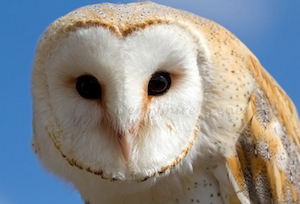Vice - Workers Are Using ‘Mouse Movers’ So They Can Use the Bathroom in Peace: “…At the beginning of the pandemic almost two years ago, there was much speculation about how the global crisis of COVID-19 would bring a newfound appreciation for how short life is, and how no one really wants to spend it chained to a desk. Out of that, we got the “Great Resignation” with people leaving their jobs in record numbers, and a new word for micromanagers of remote workers: Bossware. Bossware is spyware from your boss. Some companies make employees use keyboard or mouse-tracking software to ensure that they’re working every moment they’re on the clock, even if they’re at home. Even if managers aren’t spying on your mouse, chat apps quickly turn users’ activity bubbles to “away” when they’re inactive for a short time, like in Leah’s case. The Electronic Frontier Foundation denounced bossware as being invasive, unnecessary and unethical, and the Center for Democracy and Technology called it out as being actively detrimental to employees’ health, demanding that the Occupational Safety and Health Administration update its policies on worker safety to include at-home workers…”
- Listening to the Client – Heather Gray-Grant
- Finding People Resources and Sites 2022 – Marcus Zillman
- Investigating Charities – Tracy Z. Maleeff
- Justia Portal by the Numbers: Resources for Aspiring Lawyers (And Practicing Lawyers Too!)
- A new ratings industry is emerging to help homebuyers assess climate risks – Matthew E. Kahn
- How Data Analytics Can Change the Way Law Firms Do Business – Lisa M. (Bradford) Mayo
- Pete Recommends – Weekly highlights on cyber security issues, November 28, 2021 – Five highlights from this week: An introduction to U.S. data compliance laws; Companies ditching VPNs for zero trust architectures to secure hybrid workplaces; Research finds US adults have context-specific views on biometric technology use; Apple iOS privacy settings to change now; and Mozilla has released a new platform for privacy-focused email communications.
- Pete Recommends – Weekly highlights on cyber security issues, November 22, 2021 – Four highlights from this week: You Are the Object of a Secret Extraction Operation; Privacy experts say to choose vaccination apps wisely; Analyzing News Manipulation by State Actors; and New Federal Government Cybersecurity Incident and Vulnerability Response Playbooks.
- Pete Recommends – Weekly highlights on cyber security issues, November 14, 2021 – Four highlights from this week: Report: 51% of IT leaders don’t think they could mitigate a data breach; US Education Dept urged to boost K-12 schools’ ransomware defenses; Digital driver’s licenses: Are they secure enough for us to trust?; and Allow App To Track On Your iPhone—Here’s What It Means.
- Pete Recommends – Weekly highlights on cyber security issues, November 7, 2021 – Four highlights from this week: The U.S. Blacklists Makers of Cops’ Favorite iPhone Hacking Tool; 10 Privacy Settings Every Amazon User Should Enable Right Now; Experts Sound Alarm On ‘Stalkerware,’ Which Can Easily Be Downloaded On Your Phone Without You Knowing; and A Drone Tried to Disrupt the Power Grid. It Won’t Be the Last.
